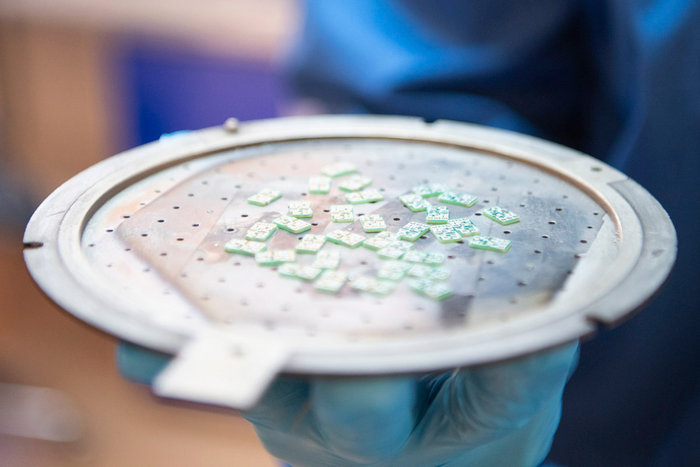Oct 28 2021
At Peter the Great St. Petersburg Polytechnic University (SPbPU), scientists in collaboration with an industrial partner detailed a new-generation thermoelectric generator. This generator is 10 times more efficient compared to other commercially available analogs.

Image Credit: Peter the Great St. Petersburg Polytechnic University.
At the end of 2021, the final product will be implemented by an industrial collaborator. The project is carried out inside the framework of the program World-class research center named "Advanced digital technologies" of SPbPU.
A thermoelectric generator transforms thermal energy into electrical energy, a topic that has garnered much interest due to the global decarbonization trend. Researchers from SPbPU came up with the idea of the generator from a complicated carbon nanostructure. The quantum electrodynamic processes take place during the heating process, activating thermoelectric generation.
We heat the structure which is created in a certain way and has a complex stoichiometry. Due to heating, interaction of electronic subsystem and structural lattice is launched. As a result, carbon nanostructure created by us begins to generate electrons.
Olga Kvashenkina, Director of the Scientific and Technical Center, Peter the Great Saint-Petersburg Polytechnic University
Kvashenkina continues, "As a result of such a quantum-physical interaction under thermal exposure, the electric current appears."
The researchers finished theoretical studies on the device's efficiency, then made a digital model and carried out digital tests, considerably decreasing the technology development time.
The simulation results were then confirmed during the experiments performed with the help of atomic force microscopes, different types of spectrometers, and a group of research equipment established particularly for this development. At present, the project is at the hardware prototype stage. The device is compact (5 х 2 mm, 1 mm in height).
The use of thermoelectric generator is crucial not only for domestic use, but also for the industry. For example, a device is placed on the surface of the turbine engine heated up to 1500 degrees, and this heat, turning into electrical energy, is transferred to sensors designed to monitor the state of this engine.
Olga Kvashenkina, Director of the Scientific and Technical Center, Peter the Great Saint-Petersburg Polytechnic University
"As for domestic use, now we are working to ensure that our development can charge the devices with low energy consumption such as electronic clocks, watering systems for indoor plants and similar devices. In future, we will strive to establish the portable thermoelectric chargers for mobile phones," added Kvashenkina.
The heat generated from the central heating system will be adequate to produce sufficient current to charge household appliances, and researchers suppose that a thermoelectric generator must be installed next to the heating system. The achieved electricity will be transferred to the electrical wiring to charge small devices.
The device's small size makes it portable. Furthermore, its ability to work at very high temperatures due to its heat-resistant carbon nanostructure components ensures its suitability for industrial applications.
The device's refractory body can also be designed for industrial use if needed. In the case of domestic use, the temperature of the room heating system will be enough for the device to produce electricity. Hence, there are no special requirements for materials of the device, making the device budget-friendly for ordinary consumers.
At present, the researchers are in the process of drafting two patents for inventions.